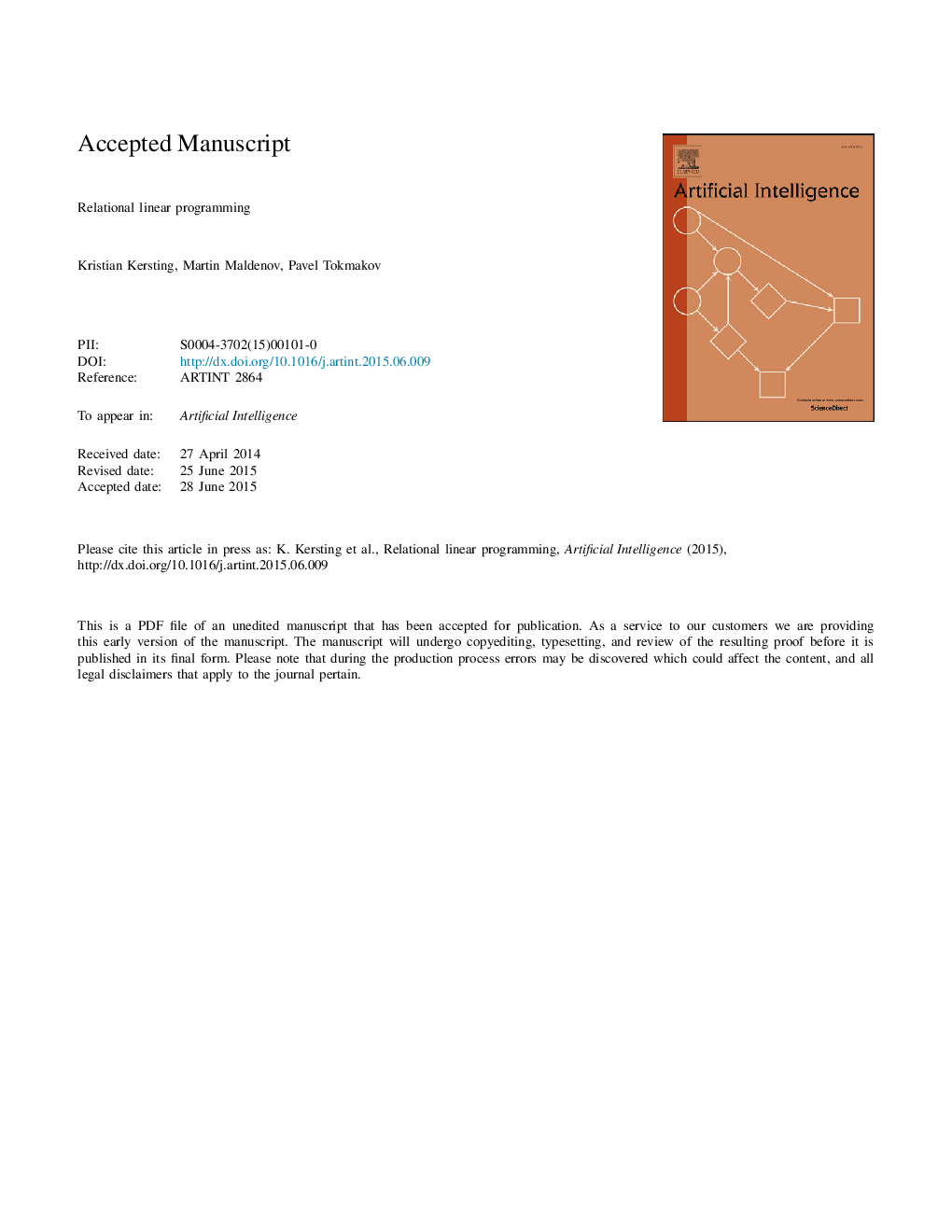ترجمه فارسی عنوان مقاله
برنامه ریزی خطی رابطه ای
عنوان انگلیسی
Relational linear programming
| کد مقاله | سال انتشار | تعداد صفحات مقاله انگلیسی |
|---|---|---|
| 111678 | 2017 | 67 صفحه PDF |
منبع

Publisher : Elsevier - Science Direct (الزویر - ساینس دایرکت)
Journal : Artificial Intelligence, Volume 244, March 2017, Pages 188-216
ترجمه کلمات کلیدی
فراگیری ماشین، بهینه سازی، منطق ارتباطی، یادگیری آماری آماری، برنامه ریزی خطی، تقارن، (تقسیم) رنگ پالایش، استنتاج احتمال احتمالی، برنامه ریزی خطی بلند پارتیشن های عادلانه پارتیشن مدار،
کلمات کلیدی انگلیسی
Machine learning; Optimization; Relational logic; Statistical relational learning; Linear programming; Symmetry; (Fractional) automorphism; Color-refinement; Lifted probabilistic inference; Lifted linear programming; Equitable partitions; Orbit partitions;

